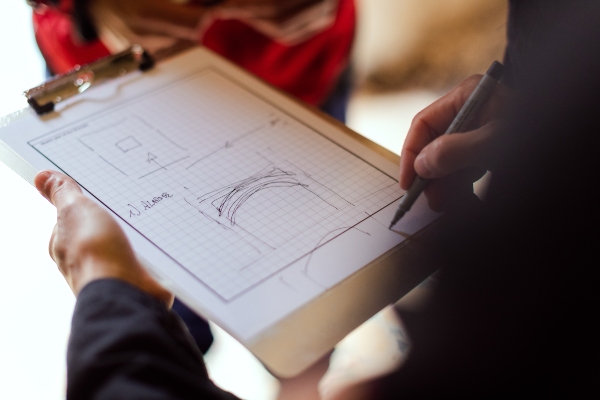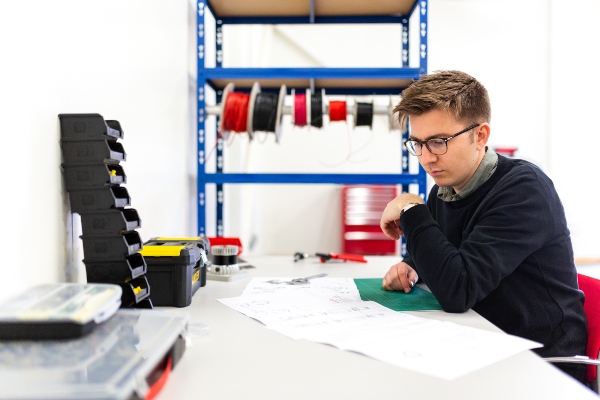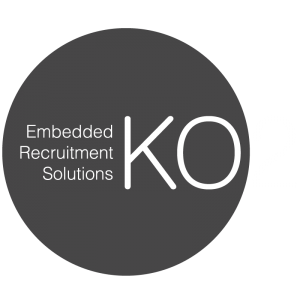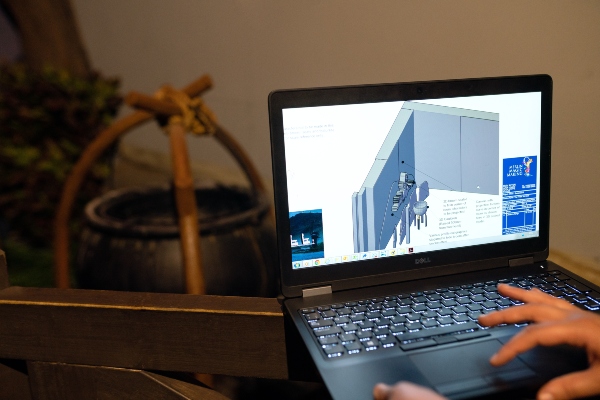The role of design engineer combines the technical know-how of specific engineering disciplines with the creative innovation of an entrepreneur. It’s a very popular role across the engineering industry because of this exciting mix of opportunities and is ideal for candidates with strong practical and theoretical skills who also love to come up with new ideas and approach problems from unexpected angles.
In the electronics and embedded systems industry, design engineers are responsible for devising and designing new products that utilise this technology. They are a valuable part of companies that want to be at the forefront of new developments in their sector, and consequently are very sought after candidates in the job market.
Whether you’re an employer considering hiring a design engineer to join your business, or a candidate wondering what this kind of role entails, this article includes a thorough explanation of a design engineer position, key skills and responsibilities, and a breakdown of what qualifications are needed to secure the role.

What is a Design Engineer?
A design engineer is a type of engineer that researches, designs, develops and helps to produce new products and systems in a wide range of industries. They are tasked with devising innovative approaches to problems and finding solutions that can be manufactured and distributed on a large scale.
Design engineers may also work on developing existing products or systems to improve the original design, fix and repeat issues and ensure that it remains valuable in the market it belongs to.
Many different companies employ design engineers as a key part of their workforce, in industries ranging from healthcare to industrial manufacturing. Some design engineers will specialise in their career and predominantly work in one sector, whilst others may maintain a broad range of engineering skills and take on roles with lots of different companies, helping to design a variety of products.
A design engineer usually works as part of a team, sometimes with other designers as well as engineers with more practical skills and experience. They will collaborate with others in the initial ideation stage of a project to help come up with new ideas and then assist with devising a product design process that is cost-effective and efficient.
Design engineers are creative individuals who also need a lot of technical knowledge, as they will have to come up with new ideas for systems or products and then practically plan how these are going to be built. It’s a role that offers plenty of variety and stimulation, with opportunities for both collaborative and independent work.
What Does a Design Engineer Do?
A design engineer can be involved in any stage of the product design process, so their day-to-day responsibilities can vary. Below is a list of some of the typical tasks involved in design engineer jobs that candidates are likely to undertake in the role.
- Responding to design briefs from clients and for internal projects
- Communicating with clients to confirm requirements, features and outcomes
- Designing new systems, components, and products and outlining the materials and aesthetics of these
- Analysing existing products, components and systems and identifying areas that can be improved
- Conducting research to inform new ideas
- Running analysis to ensure new ideas are safe and cost-effective
- Assisting with project planning to ensure that schedules are realistic and standards are met
- Creating plans and prototypes using computer-aided design (CAD) and computer-assisted engineering (CAE) software
- Running prototype tests, analysing results and identifying areas for development
- Collaborating with other engineers and designers on design ideas
- Outlining the requirements for new products
- Creating and updating progress reports for other team members and stakeholders
- Researching relevant quality and safety standards and ensuring that designs and prototypes meet these standards
- Presenting updates to clients or stakeholders and delivering feedback to the rest of the team
- Responding to feedback and adapting designs to meet new requirements
Mechanical Design Engineer
A mechanical design engineer specialises in the creation of mechanical products, such as machinery, equipment and tools. They tend to come from a mechanical engineering background, and will often work on products or systems used in industrial or construction settings.
Electrical Design Engineer
An electrical design engineer will design, develop and produce electrical devices, components and systems. They will take specialist knowledge of electronic theory and apply it to all stages of product development, as well as devising the best ways to install and maintain electrical products and systems.
Structural Design Engineer
A structural design engineer is responsible for designing the plans used in the construction of buildings, bridges, transport networks, building extensions and other large-scale structures. Not only are they tasked with coming up with innovative structural solutions, but they also have to consider the safety of the structures they design and the environments they will be built in. Structural design engineers may come from a construction background instead of an engineering one and are often brought in as consultants at the start of a project.
Aerospace Design Engineer
Aerospace design engineers are responsible for designing all kinds of aircraft, spacecraft and satellites. They may have a mechanical design background and use physics and mathematical knowledge as well as engineering experience to design and maintain either entire aerospace vehicles or specific components such as navigation systems.
How to Become a Design Engineer
Most candidates begin their design engineer career with a university degree in an engineering discipline, but this is not the only route. You can gain the necessary knowledge and experience by completing a Higher National Diploma or foundation degree to become an engineering technician, and then work up to a design engineer role.
If you do take a university degree route, you can study a general engineering course or choose a more specific discipline, depending on your interests. Design engineers work across a vast array of industries, so you can come into the role from a range of backgrounds.
Common degrees that design engineers study include Mechanical Engineering, Electrical Engineering, Civil Engineering and Product Design Engineering.
Many engineers study for an integrated Masters qualification as part of their degree. Whilst this is not necessary for the majority of design engineer jobs, your job prospects may be better with an MSc degree and your starting salary may be higher.
You should also bear in mind that your career trajectory will be much better if you ensure that your degree makes you a chartered engineer.
A great way to begin your design engineer career is to undertake a graduate scheme with an employer in the industry sector that you want to work in. This gives you a great deal of practical experience as well as training and professional support, and can often lead to a job offer at the end of the process.
You may begin your career in a general design engineer role or start as a technician or junior engineer. The more experience you gain, the more likely you are to be promoted to more senior design engineer roles.
As illustrated above, the role of design engineer has a lot of potential for specialisation, so you may end up working as a mechanical or aerospace engineer and then move into a design role from here.

Design Engineer Skills
As well as the necessary design engineer qualifications, there are a variety of skills that are well-suited to the role and should be considered whether you’re assessing candidates or looking for areas to develop when preparing to apply for the role.
Commercial Awareness
Commercial awareness is perhaps one of the most important skills that you will need as a design engineer. No matter what area of the industry you work in, in order to design new products and systems you will need to have a good idea of what is already out there and then kinds of technology and designs that usually work well.
A key part of having good commercial awareness is also understanding manufacturing processes and methods so that you know how realistic your product designs are.
Attention to Detail
Whether you’re drawing up initial plans, inspecting and refining a design, or studying existing products or systems to search for areas to improve, attention to detail is incredibly important. A design engineer should be able to focus on components and specifications as well as zooming out to come up with brand new ideas, and employers will value candidates who are good at noticing the minute details and spending time refining any minor errors.
Technical Skills
The role of design engineer is a job that requires a high level of technical skill and expertise across a range of scenarios and software. When it comes to initial ideas and brainstorming, having strong drawing abilities and clearly being able to illustrate your ideas will be incredibly valuable.
Design engineers are also required to have confident use of CAD and CAE software to illustrate initial ideas, design prototypes and refine existing designs. This is one of the most important technical skills needed in the role and is something that almost all employers will be looking for.
Creativity
It goes without saying that to be a design engineer you need to be as creative as you are technically skilled. Being given a brief and having to come up with new ideas and solutions required creative thinking, especially if you are tasked with being innovative.
Creative thinking is also needed when faced with problems in the design process, as being able to approach an issue from different angles or suggest a radical new approach is often the best way to overcome a challenge.
Teamwork
Some aspects of design engineering will revolve around independent work, but many parts of the role will require you to work with others. Having good teamwork skills means getting on well with others, being able to delegate and collaborate, and taking direction well, all of which will help in a design engineer career.
Communication
Leading on from that last point, communication is especially important as a design engineer who will have to work with a variety of people on different projects. From sharing ideas and directing your coworkers to delivering updates and reports, both verbally and written, to senior members of staff, having clear and concise communication skills is very important.
Maths and IT Skills
Every role in the engineering industry needs a strong foundation of maths and IT skills, and the role of design engineer is no different. Most of this background will come from your early education and training, but employers will value candidates who keep these skills sharp and are constantly learning and improving their abilities.
Initiative
Finally, a really useful skill for design engineers is initiative. A key part of this role is about pushing the limits of what already has been done and finding opportunities to innovate, and if you’re an individual who takes initiative you’ll be much more open to these kinds of opportunities and be able to seize chances to challenge yourself and try something new.
Summary
Design engineer jobs offer a wide range of responsibilities and opportunities to those who work in them, making it an ideal position for engineering candidates who enjoy creative design as much as they like engineering theory and practical maintenance. From an employer perspective, having talented design engineers as part of your company makes a huge difference to the kinds of products and solutions you offer your clients, so it’s a role that is definitely worth recruiting well for.
If you’re an employer in the embedded systems industry that is looking for specialist help with hiring design engineers, or an engineer looking for a creative role such as this one, get in touch and find out more about how our recruitment agency can help you.








